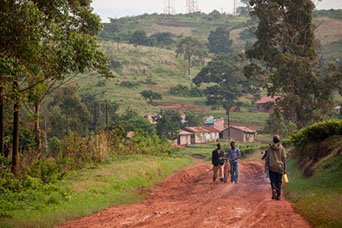5 Discourses and land grabs
Discourses play a role in shaping the ideas that actors use to communicate and legitimise power relations. For example, the phrase ‘land grab’ (as opposed to ‘land acquisition’) contains certain assumptions. A ‘grab’ implies something that is done in haste and is inappropriate and unfair. The phrase ‘land grab’ is more likely to be used by those who regard the change of ownership of land in Senegal and elsewhere as wrong and unjust. Those actors who uphold the customary rights of communities are demonstrating resistance merely by using the term ‘land grab’. They wish the phrase to become well established in everyday vocabulary as it expresses understandings with which they agree. However, those who support the right of the state to enclose customary land and sell it to businesses will favour the phrase ‘land acquisition’, which implies a transfer of land ownership that is legal, orderly and reasonable.
The phrases ‘land grab’ and ‘land acquisition’ thus embody different values and understandings. They tend to be used by different actors with different interests. In short, the two phrases belong to different discourses. As you have seen, the first Forum on Food Sovereignty held in Nyéléni, Mali in 2011 played an important role in organising resistance against what it terms ‘land grab’. But the alternative discourse of ‘land acquisition’ argues that much African land is underutilised in agricultural terms. Supporters contend that, with mechanisation and inputs of fertilisers, the land could become more productive agriculturally.
So who is right? Is land grab/land acquisition necessarily a bad thing? It is necessary to be more critical and deepen your investigation.

